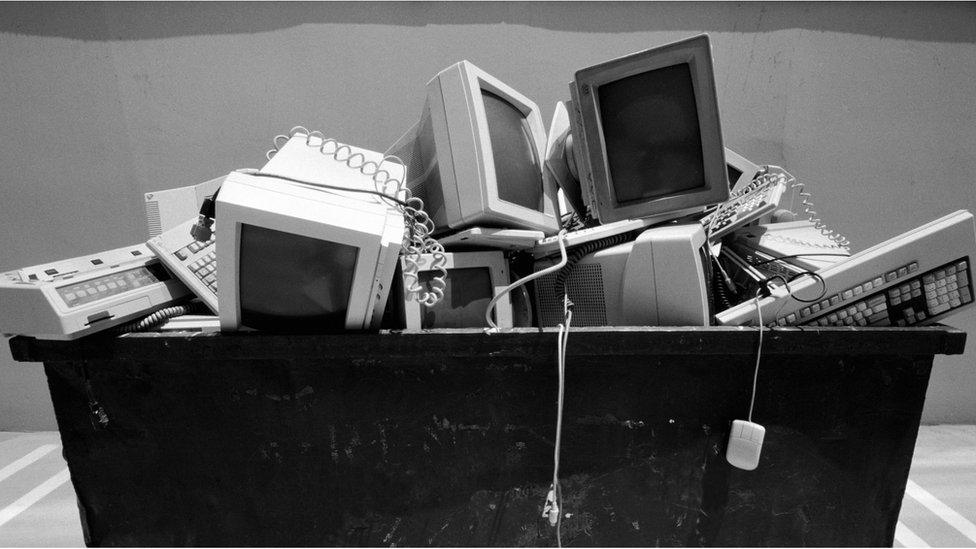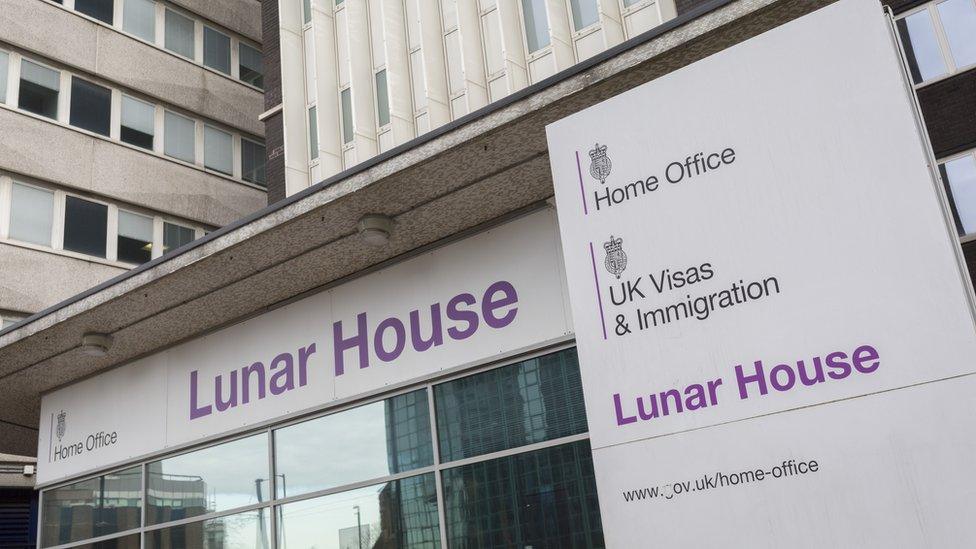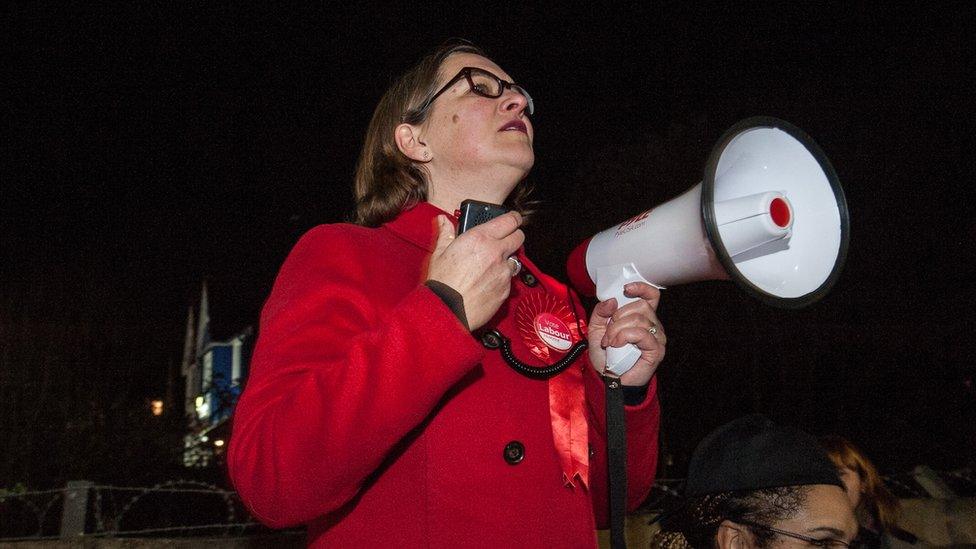Keeping old computers going costs government £2.3bn a year, says report
- Published
- comments

Half of all government spending on computers is dedicated to keeping old systems going, a report has found.
The government spends £4.7bn a year on IT across all departments, and £2.3bn goes on patching up systems, some of which date back 30 years or more.
Labour said the situation showed Cabinet Office minister Michael Gove's "incompetence and failure to deliver".
The Cabinet Office said it was taking action to reduce the government's reliance on outdated technology.
The Cabinet Office report, called Organising for Digital Delivery, external, warns that government could end up spending between £13bn and £22bn over the next five years on obsolete systems.
Cyber attack
Some government digital services "fail to meet even the minimum cyber-security standards," it adds, and data can not be properly extracted from them, making them "one of the greatest barriers" to civil service innovation.
The Home Office spends more than any other government department on IT but still relies on 12 so-called legacy systems, despite repeated efforts to retire them, the report found.

The Home Office is the biggest spender on IT, making sure their 12 legacy systems are kept operational
The government has made a big push to use data to improve public services, but despite "significant sums" being spent on data storage departments are "making little use of this data to influence action or decision-making".
The report also says the government is not carrying out any kind of monitoring of performance of computer systems, as is common in leading private and public sector organisations.
A performance management system was put in place in 2012, but has since fallen into disuse - and even the technology that monitors its performance is now obsolete and vulnerable to a cyber attack.
The report also highlights digital success stories, such as the rapid launch of the NHS coronavirus testing service and the furlough scheme.
The Home Office's EU Settlement Scheme is also cited as example of rapid rollout.
The report says government departments that need a new digital service should launch a "minimum loveable product".
This means, for example, not worrying about making the website look nice and having lots of features, but to focus on the absolute bare essentials required for launching a service to the public.
'Digital transformation'
Commenting on the report, Labour's Shadow Cabinet Office minister Fleur Anderson said Michael Gove had "created a culture of waste and inefficiency".
"It is unacceptable that taxpayers' money is being pumped into failing and outdated infrastructure.
"Keeping old and broken systems going is what this Conservative government does best. They desperately need an upgrade."

Labour's Fleur Anderson has criticised government inefficiency
A Cabinet Office spokesman said the government had accepted the report's recommendations in full.
"We are reducing our reliance on legacy IT, moving away from costly, insecure and unreliable technology and laying the foundations for future digital transformation."
Old IT systems are often used in complex, specialised areas and need to be carefully replaced to avoid further costs down the line, the spokesman added.
The Cabinet Office has launched a new department, external, the Central Digital and Data Office, to help update systems.
HM Revenue and Customs recently announced, external it would scrap its 27-year-old Customs Handling of Import and Export Freight (CHIEF) system in March 2023. It has been in operation since 1994.
Its replacement, the new Customs Declaration Service (CDS), was originally commissioned in 2015.
But when Britain voted to leave the EU the following year it had to be redesigned to handle far more customs declarations.
The extra cash needed is one of the reasons HMRC cut down on other digital initiatives in 2018, external.